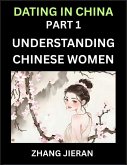China is undergoing a quiet yet profound sexual awakening (¿¿¿ xìng jué x¿ng), a transformation that is reshaping how intimacy is perceived and practiced. For generations, traditional Confucian values (¿¿¿¿¿ rú ji¿ jià zhí gün) emphasized family honor, marital fidelity, and the suppression of premarital sexuality. Casual encounters (¿¿¿¿¿ suí yì xìng xíng wéi) were stigmatized as immoral, and open discussions about sex remained taboo. Today, these norms are being challenged by urbanization, digital connectivity, and a younger generation eager to redefine personal freedom.Yet this shift is far from uniform. In metropolitan hubs like Shanghai and Beijing, dating apps (¿¿¿¿ yü huì rün jiàn) and hookup culture (¿¿¿¿ yü pào wén huà) coexist with lingering stigmas, particularly for women. Meanwhile, in rural areas, traditional expectations (¿¿¿¿ chuán t¿ng gün niàn) about marriage and sexuality often persist, creating a cultural divide that mirrors China's broader urban-rural split.Gender plays a pivotal role in this evolution. While men may face fewer social consequences for casual dating, women (¿¿ n¿ xìng) often navigate a double standard (¿¿¿¿ shüng chóng bi¿o zh¿n), where their sexual autonomy is judged more harshly. Education and socioeconomic status further complicate the picture: university-educated individuals (¿¿¿ dà xué sh¿ng) are more likely to view casual relationships as a matter of personal choice, whereas those with less formal schooling may tie sexual behavior to family reputation (¿¿ miàn zi) and economic stability.This book explores the tensions between tradition and modernity in China's sexual landscape. Through cultural analysis, we examine how factors like region, age, and gender influence attitudes toward casual dating (¿¿¿¿ suí yì yü huì), one-night stands (¿¿¿ y¿ yè qíng), and the pursuit of intimacy in a society still grappling with its past.In a nation where "face" (¿¿ miàn zi) and family remain central, the rise of casual sex is not merely a personal choice-it's a social revolution. Welcome to the front lines of China's evolving relationship with desire.
Bitte wählen Sie Ihr Anliegen aus.
Rechnungen
Retourenschein anfordern
Bestellstatus
Storno








